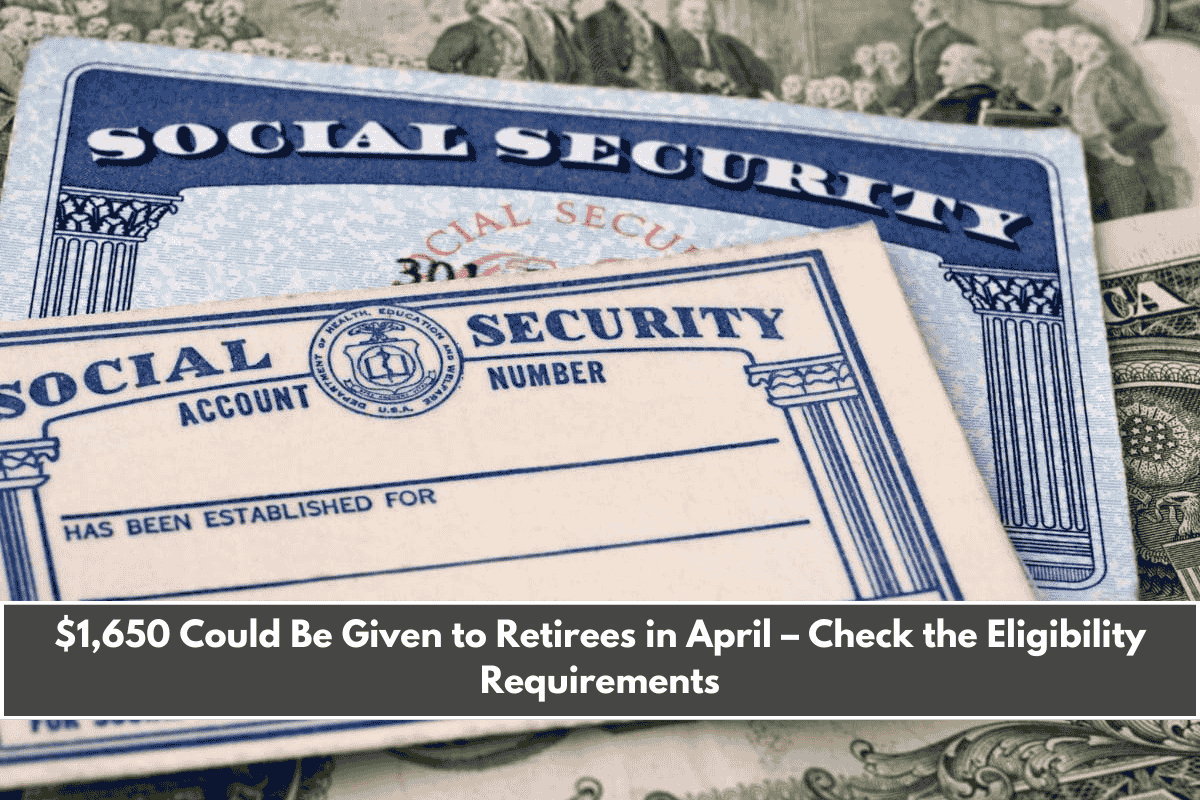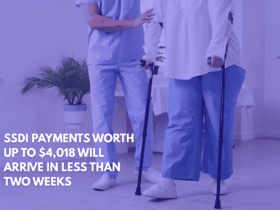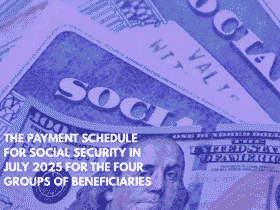If you’re a retired worker in the United States, you could receive up to $1,650 in Social Security benefits this April 2025. These monthly payments, managed by the Social Security Administration (SSA), provide crucial financial support to help retirees afford essential expenses like housing, food, utilities, and medical care.
Whether you’re already receiving benefits or just planning your retirement, knowing how much you’re eligible for, when you’ll get paid, and how to increase your monthly income can help you stay financially secure.
What Is the $1,650 Social Security Benefit?
The $1,650 amount is a typical average benefit some retirees may receive in April 2025. It’s not a fixed amount and varies based on individual factors such as:
- Your earnings history
- The age you started receiving benefits
- Whether you’ve reached full retirement age (FRA)
In 2025, the average monthly benefit for retired workers is around $1,976, thanks to a Cost-of-Living Adjustment (COLA) increase. Some may receive less, such as $1,650, while others may receive much more—even over $4,000 per month if they delayed retirement until age 70 and earned high incomes.
Example:
- John, who retired at age 62 with moderate earnings, gets $1,650 monthly.
- Mary, who waited until age 67 and earned a high salary, receives $2,500.
- Max benefit at age 70 in 2025: $4,873
Who Is Eligible to Receive This Benefit?
To receive Social Security retirement benefits in April 2025, you must meet the following conditions:
1. Be at Least 62 Years Old
You can start collecting benefits at age 62, but this reduces your monthly check permanently compared to waiting until your full retirement age (66–67 depending on your birth year).
2. Have Worked and Paid Social Security Taxes
You need at least 40 work credits (around 10 years of work) paying into the system to qualify.
3. Your Benefits Depend on Your Earnings Record
The SSA calculates your benefit based on your 35 highest-earning years. If you worked fewer than 35 years, the remaining years count as zero, which lowers your benefit.
When Will You Get Paid in April 2025?
The SSA pays retirement benefits based on your birth date, except for those on the legacy payment schedule (retired before May 1997). Here’s the April 2025 payment calendar:
| Birth Date Range | Payment Date |
|---|---|
| 1st – 10th | Wednesday, April 9 |
| 11th – 20th | Wednesday, April 16 |
| 21st – 31st | Wednesday, April 23 |
If you started receiving benefits before May 1997, you will be paid on April 3, regardless of your birthday.
Tip: Set Up Direct Deposit
It’s highly recommended to receive your payment via direct deposit to avoid delays or lost checks. You can set it up through your bank or by logging into your mySocialSecurity account.
How to Maximize Your Social Security Benefits
You can take steps to increase your benefit amount even after you’ve started planning for retirement. Here’s how:
1. Delay Retirement
Each year you delay claiming past your full retirement age adds about 8% to your monthly benefit, up to age 70.
2. Work Longer
More years of higher income can replace lower-income years in your earnings history, raising your overall benefit.
3. Understand Spousal and Survivor Benefits
If you are married, divorced, or widowed, you may qualify for benefits based on your spouse’s record. These benefits can range from 50% to 100% depending on your situation.
4. Coordinate With Other Retirement Income
Smart planning between Social Security, **401(k)**s, pensions, and IRAs can reduce taxes and extend your savings.
Common Misunderstandings
Many retirees misunderstand how Social Security works. Let’s clear up a few things:
- “Everyone gets the same amount.”
False. Your benefit is unique and based on your earnings and retirement age. - “Social Security will cover all my needs.”
Not likely. SSA estimates it replaces only about 40% of your pre-retirement income. - “I won’t get benefits if I move abroad.”
Not true for most countries. U.S. citizens can receive Social Security payments overseas, but some countries are exceptions.











Leave a Reply